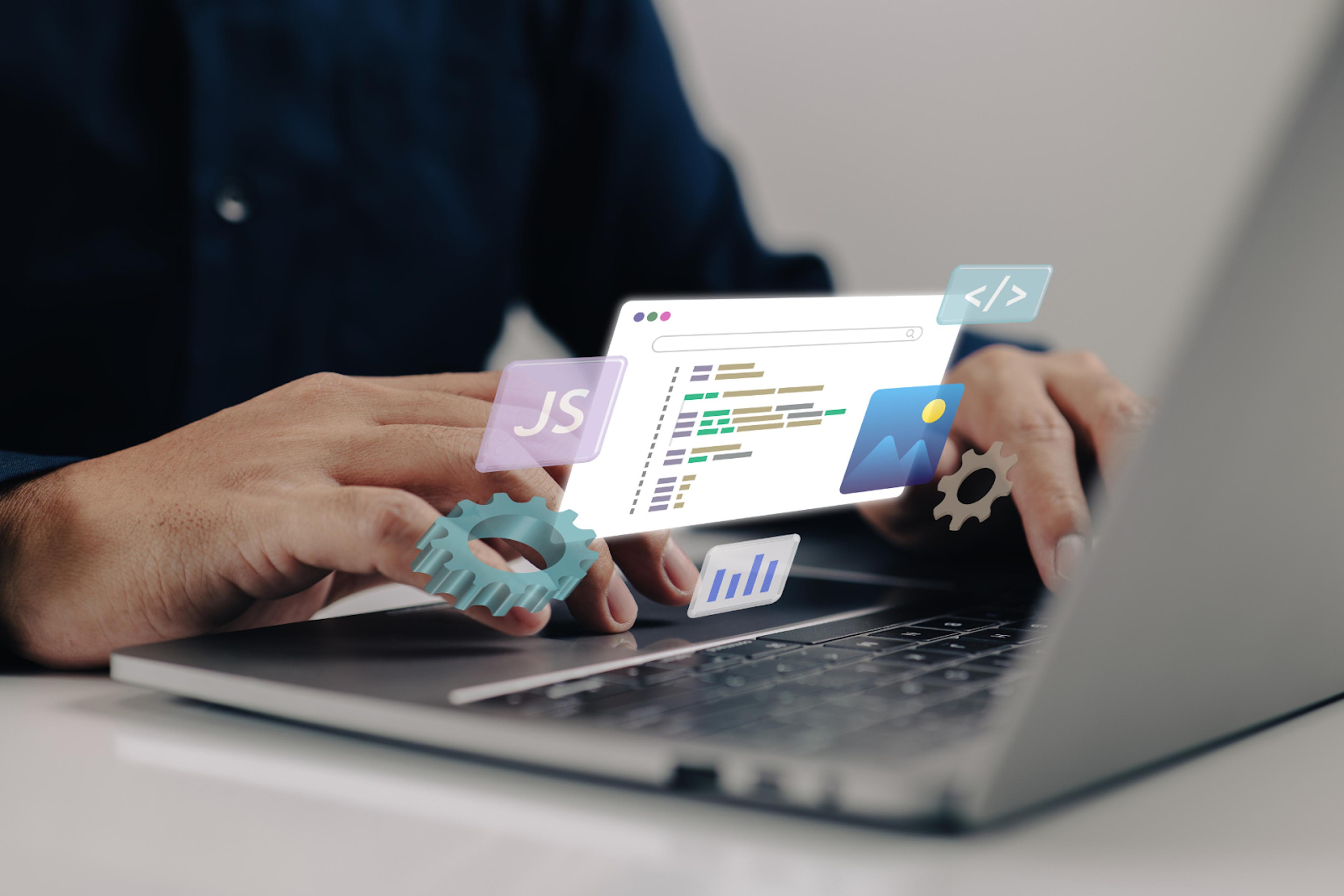How to Land a Product Management Internship in 2025
Learn how to land a product management internship in 2025 with tips on building skills and standing out in applications.
Posted March 6, 2025

Table of Contents
Product management internships offer a unique chance to gain hands-on experience, build your skills, and make valuable connections in the industry. Whether you're an undergraduate looking for a summer internship or a career changer seeking to break into product management, landing the right opportunity can set you on the path to success.
In this guide, we'll walk you through everything you need to know to get a product management internship in 2024. You'll learn what these internships involve and how to find the best opportunities. We'll also cover what you can expect as a product manager intern, including typical responsibilities and how to make the most of your experience.
By the end of this article, you'll be well-equipped to start your journey as a product management intern and take your first step towards becoming a full-fledged product manager.
What Is a Product Management Internship?
A product management internship is a short-term, hands-on role designed to provide practical experience in managing the development and lifecycle of products. Interns typically work on tasks such as market research, customer insights analysis, roadmap planning, and cross-functional collaboration with teams like engineering, design, and marketing.
These internships are often offered during the summer and help aspiring product managers build key skills, gain mentorship, and contribute to real-world projects that shape a company’s product strategy.
Why Do a Product Management Internship?
A product management internship can be a crucial step in kick-starting your career. Internships provide hands-on experience with real-world projects, allowing you to apply theoretical knowledge in a practical environment. You’ll have the chance to work closely with cross-functional teams, including engineering, design, and marketing, to better understand the lifecycle of product development.
A product management internship typically offers a competitive pay range, which is an added incentive while you learn. Internships also allow you to build a strong professional network and enhance your resume, increasing your chances of landing a full-time product management role in the future.
5 Key Benefits of PM Internships
- Hands-on experience: You'll get to apply what you've learned in school to real-world situations.
- Networking: You'll meet professionals in the field who can offer advice and maybe even job opportunities later on. Especially at competitive companies, your internship cohort will be a valuable resource for years to come.
- Resume booster: Having a product management internship on your resume shows employers you're serious about the field. It also gives you information to talk about in future interviews.
- Skill development: You'll sharpen your analytical, communication, and teamwork skills. Learning from full-time PMs is a great way to build real skills that will benefit you in your future career.
- Career clarity: You'll get a better idea of whether product management is the right path for you. Because of the hands-on nature, PM interns typically have more responsibilities and tasks that are similar to the day-to-day of a product manager. If you’re not sure if PM is the right career for you, an internship is a great way to test it out.
Duties and Responsibilities of Product Management Interns
As a product management intern, you'll wear many hats and tackle a variety of tasks. One of your main job duties is to help the product team make better decisions and move projects forward. Here's what you might do:
- Conduct market research to understand customer needs and industry trends
- Analyze data to find insights that can improve products
- Help create product documentation, like user stories and specifications
- Work with different teams, including engineering, design, and marketing
- Support the product development process by joining meetings and following up on action items
- Assist with user testing and gather feedback to make products better
- Help manage projects by tracking progress and making sure deadlines are met
What Are the Skills Needed for a PM Internship?
To succeed as a product management intern, you'll need a mix of skills:
- Strong analytical and problem-solving abilities to make sense of data and find solutions
- Good communication skills to share your ideas and work well with others
- The ability to juggle multiple tasks and stay organized
- Supply chain & planning
- A knack for understanding user needs and thinking from their perspective
- Basic technical knowledge to work with product teams
- Curiosity and a willingness to learn about product management principles and industry trends
How to Get a Product Management Internship
Okay – you now know you want to recruit for a product management internship, here’s how you actually go about getting the job. The best thing that you can do to prepare your application is to work one-on-one with an expert product management coach who has years of experience navigating PM recruiting. On top of that, here’s what to do:
1. Network, network, network
Networking is crucial in finding product management internships. Attend industry events, conferences, and career fairs to connect with professionals in the field. Join relevant professional organizations and utilize LinkedIn to reach out to product managers for informational interviews or advice.
Don't be afraid to ask for referrals, but do it genuinely. Referrals often result in first-round interviews and can significantly increase your chances of landing an internship. The best referrals don’t come from strangers, though, focus on building real relationships with people in the field and learning from their experiences thus far. Most people are willing to help students, so use your .edu email address to your advantage when reaching out to professionals. Also, reach out to people with whom you have some connection – maybe they’re an alum of your school, studied the same thing in college, played a sport that you played, or speak the same second language. Whatever it is, a commonality is a great way to get your foot in the door.
2. Build something so you have real product development experience
One of the best ways to stand out for a product management internship is to show that you actually have experience building something. This doesn’t have to be through a formal job either; start something as a side project, participate in a hackathon, volunteer for a friend’s startup, do anything that gives you real anecdotes to speak to.
Document the full product lifecycle: identify a problem, define a solution, create a prototype, gather user feedback, and iterate. Even if it’s a small-scale project, this demonstrates your ability to think like a PM and apply core product management skills in a real-world context. Few people applying to PM internships actually have building experience so whatever you can do to get that will give you a distinct advantage.
3. Prepare your application
Start by crafting a compelling resume that highlights your relevant skills and experiences. Tailor it to the specific product management internship you're applying for by using the language in the description and making sure each of your bullets shows the impact that you, personally, drove. Quantify everything to show the scale and context of your impact. Research the company and understand its values, goals, and products. This will allow you to align your skills and experiences with their needs, making your resume more impactful.
Read: An Expert’s Guide to Resumes: Five Tips to Make You Stand Out
Focus on any previous internships, relevant coursework, or projects you've worked on. These experiences can show your ability to apply theoretical knowledge in a practical setting and showcase your problem-solving skills. Don't forget to include any leadership roles or extracurricular activities that demonstrate your ability to take initiative and work well in a team.
Expert Tip: It’s a plus if you’re pursuing a computer science degree or have some experience with SQL and Python. Most PM internships aren’t strictly technical, but because product managers have to work closely with engineering teams, technical knowledge is a plus. There are also Technical Product Manager full-time roles and internships that you would also be qualified for.
4. Nail your interviews
You can network all you want and have a great resume with referrals, but if you flop the interviews, you won’t land the job. Product management interviews, more than other industries, are actually a good taste of what the job actually entails. They’re looking for you to show the qualities of a successful PM: communication, a focus on the customer, data-driven decision-making, stakeholder management, and good prioritization.
Before you show up for interviews, here are some steps we recommend taking:
- Identify stories you can use for behavioral questions – The best answers are those backed by real, specific examples of similar situations you’ve faced in the past. Choose anecdotes that you can use for different prompts so you’re not stuck if they ask a question you didn’t expect.
- Research the company and the team – Do your research to show the interviewer that you actually want to work at that company and have thought through what the role would entail. Put yourself in the shoes of a PM on that team, what problems would you solve? What metrics would you like it? How would you improve the existing product?
- Do a mock interview – This is the absolute best way to prepare for an interview is to do a practice round (or several) with someone who can provide feedback on your responses and make sure you’re answering in the most compelling and structured way possible. A trial run can also help you get the nerves.
The Different Types of PM Internships
Not all product management internships are created equal. Depending on your goals and interests, you can choose from various types of PM internships, each offering unique experiences and opportunities. Here's a breakdown of the main types.
Big Tech PM Internships
Big Tech companies like Google, Microsoft, and Amazon offer structured PM internships with access to robust resources, training, and mentorship. Interns typically work on well-defined projects that impact millions of users. These programs are competitive and focus on specific skills like user research, product strategy, and cross-functional collaboration. The exposure to established processes and a global user base can provide a strong foundation for a PM career, and you also get access to a wide network of program alumni.
Startup PM Internships
Interning at a startup offers a fast-paced and dynamic environment where you'll likely wear multiple hats. With smaller teams and fewer resources, startup PMs often get to work on end-to-end product development, from ideation to launch. This type of internship provides a hands-on experience and requires adaptability, problem-solving, and creativity. If you're looking to experience the hustle of building a product with fewer constraints, startups can be a great choice.
Associate Product Management (APM) Internships
Some companies, particularly in tech, offer internships as part of their Associate Product Manager (APM) programs. These are highly competitive and structured rotational programs designed to develop future PM leaders. Companies like Google, Meta, and Atlassian offer such programs, which emphasize mentorship, leadership training, and a deeper dive into PM best practices. These internships are ideal for candidates with strong technical or business backgrounds.
See:
- How to Get Into the Facebook/Meta RPM Program (2024)
- How to Get Into the Google APM Program (2024)
- How to Get Into the Uber APM Program (2024)
Industry-Specific PM Internships
For those interested in specific industries like healthcare, fintech, or gaming, there are PM internships tailored to these sectors. For example, a PM intern at a healthcare startup might focus on compliance and patient experience, while a fintech PM intern might prioritize security and transaction flows. These internships allow you to develop expertise in a niche area of product management.
Non-Traditional PM Internships
Some internships don’t follow the traditional PM role but still build relevant skills. Examples include internships in operations, UX design, product marketing, or data analytics that allow you to contribute to product development indirectly. These roles can be stepping stones to a PM career, especially if you're building experience in a related domain.
How to Make the Most of Your Internship
Once you’ve got the internship, it’s important to make the most out of it to set yourself up for success for a full-time offer or future internships.
Set clear goals with yourself and your supervisor
Before starting your internship, think about what you want out of the time there. Do you want to expand your network? Ship a feature from start to finish? Learn whether it’s the right career path for you? Whatever it is, go in with a plan so you make sure to accomplish what you set out to do. Then, once you’ve started your internship, meet with your supervisor and talk through their expectations. Ask them how they are measuring your success and progress, particularly if it’s a company that you want to work for full-time.
Learn from those around you
One of the most valuable aspects of a product management internship is the opportunity to learn from experienced professionals. Seek out mentors within the company who can guide you through the intricacies of the role. And, don't be afraid to ask questions and request feedback on your work! This is one of the most helpful things you can do throughout your internship. Many seasoned product managers are willing to share their knowledge and experiences with interns who show enthusiasm and dedication.
Land a PM Internship With the Help of an Expert
Product management internship recruiting can be highly competitive and stressful, but an expert coach can help you navigate every part of the process. From developing skills to preparing for interviews, crafting a resume, navigating job transitions, networking, and much more, a coach will give you one-on-one, personalized feedback grounded in tons of experience helping aspiring PMs land internships at top companies. Browse all product management coaches or see some of the most popular ones below:
Conclusion
Landing a product management internship is a big step towards a successful career in this exciting field. It gives you a chance to learn firsthand about creating and improving products people love. Remember, the key is to make the most of your experience by setting clear goals, learning from others, and taking on challenging tasks. This hands-on learning has a huge impact on your skills and future job prospects.
So, go ahead and start your journey into product management. With the tips and insights from this guide, you're well-equipped to find and make the most of a great internship opportunity. Your enthusiasm, willingness to learn, and hard work will set you up for success. Good luck as you begin this exciting chapter in your career!
FAQs
What does a product management intern do?
- A product management intern works on developing and refining the product vision by assisting with tasks such as market research, analyzing customer feedback, and supporting the creation of product roadmaps. The intern also collaborates with cross-functional teams to ensure the product aligns with both business goals and user needs, helping build the candidate's skills in communication and problem-solving.
What is the salary of a product internship?
- The pay range varies on location, company, and the intern's experience, but typically product management internships offer competitive pay in the range of $20 to $40 per hour. This provides an excellent opportunity for interns to gain valuable experience while being compensated for their contributions to the product development process.
How much do Spotify product management interns make?
- At Spotify, product management interns typically earn a competitive salary, with estimates ranging from $35 to $45 per hour, though wage may vary based on factors such as location and the candidate's skills. This pay reflects Spotify's commitment to hiring interns who can help contribute to shaping their product vision.
How to get a product management internship with no experience?
- To land a product management internship with no experience, focus on building a strong foundation in product vision and showcasing transferable skills, such as problem-solving, teamwork, and market analysis. Highlight your candidate's skills in areas like communication and project management, and consider taking online courses or certifications to demonstrate your commitment to learning the field.
Read next:
- The 50 Most Common Product Manager Interview Questions (With Sample Answers)
- Preparing for Your Product Manager Behavioral Interview: Tips and Strategies
- How to Answer 'What Is the Most Difficult Situation You've Faced' (With Examples)
- The 25 Best Entry-Level Associate Product Management (APM) Programs (2024)

















